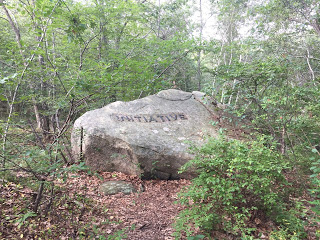After sending out a photo on Facebook of Hubby and me in Dubrovnik eating the lovely Croatian holiday treat of
“Saruman” — often eaten with mash potatoes — we tried to edit our update only to be re-auto-corrected to eating “Sarah” for lunch. The incident reminded again of just how much fun words can be and how much trouble they can get us into. I decided that instead of my usual rather serious end of the year navel gaze, that I would approach 2016 with a celebration silliness while I look back on some of my best best typo and autocorrect moments. Writers, especially erotica writers, tend to have a particularly juicy collection. By the way, it was sarma we were actually eating – no evil wizards were stewed and no women named Sarah were fricasseed, nor invited for a steamy threesome while frolicking on a bed of spuds.
Any writer will tell you that word-herding is hard work. Words are unruly things and not always willing to fall in line like we want them to. They’re tricksters just waiting to trip us up when we least expect it. That’s why I’m blotting about typos and, the bane of everyone’s existence, auto-correct. I recall a very fun twitter convo with Madeline Moore about my latest blot post, which was up for everyone to read right not! She promised me she would go right to my blot and read the pist, then buy my book not.
Writers constantly play with words, and as Madeline and I tweeted back and froth, I got to thinking about how much fin
we all have when the wrong word is used — either because of a typo or because of an over-zealous auto-correct. I can’t tell you how many times I’ve NEARLY called someone ‘Sweetit’ on FB or in an email. ‘i’ isn’t even close to ‘t’, so I can only hypothesize that because of what I do for a living, fighting the unconscious urge to write ‘Sweetit’ instead of ‘Sweetie’ is probably a Freudian thing. If I call you Sweetit in any of our correspondence, please take it in the spirit in which it is meant and know that it was probably my evil Muse’s way of giving myself the finger … in this case the wrong finger on the wrong key.
I once had the misfortune of being the victim of auto-correct when I asked Vida Baily about her latest ‘WIPE’ instead ofher ‘WIP.’ The silly convo that followed was caught for posterior on Facebook because for some reason, the ‘edit’ function wouldn’t work. Not long after, I was looking down through my blog content folder for an older post I wanted to refer to when I saw in my documents a post I’d written as I participated in the ‘Snob by the Sea’ blog hop, which will come as a real surprise to Victoria and Kev Blisse, who organized the ‘Snog by the Sea’ blog hop to promote Smut by the Sea. Honestly, there was not a jot of snobbery in that fabulous blot hog, just a lot of hot snogging!
I can’t count the number of times my characters have ‘shit the door behind them’, which is far more painful than shutting it … one would assume. And my poor Lakeland witches were nearly caught at the top of Honister Pass in a snot storm. I once read a story in which the hero’s face was pinched by an uncomfortable erection … After I fell off my chair laughing, terribly relieved that it hadn’t been fatal, I was reminded how easily I can make a sentence go on and on forever until it’s hard to tell what part of a character’s anatomy is being pinched by what … or whom, which is simply a very long drawn-out way of saying that sentence argument is very important!
The thing is, as writers we think a lot faster than we can get those thoughts down on paper. When those thoughts come out of the imagination, and when our characters and plot take control and drag us down the rabbit hole, sometimes it feels like we’re actually just secretaries struggling to take down their words and actions as fast as we can before faces get pinched by erections and whole villages are buried under snot storms.
Language and word play say a lot about a person. They say a lot about a writer, about a story-teller. Writers choose to dance dangerously with words, so it comes as no surprise when we occasionally trip over our own semi-colons. It doesn’t help that I’m the world’s worst speller. Then there’s the constant battle of homophones. I’ve had the odd pale face end up pail … and while faces may be good for showing emotion, they’re not very practical for carrying large quantities water. Seriously though, it gets really tense sometimes when every word counts, when I want to make sure that my readers catch every nuance, every scent, every taste, every feel of flesh on flesh. That being the case, sometimes a writer just needs to play with the words and let them have their head. That means occasionally shitting the door on the more serious word-smithery and leaving the plot and the characters to stew in their own juices just for a little while, just long enough for a silly little blot post to all of you Sweetits out there before I get back to more serious word-herding in anticipation of the new year.
Higs and snobs all around, my Lovelies! Wishing you all Hippy Holidays, no matter how you celebrate, and all the beast in the New Ear!










